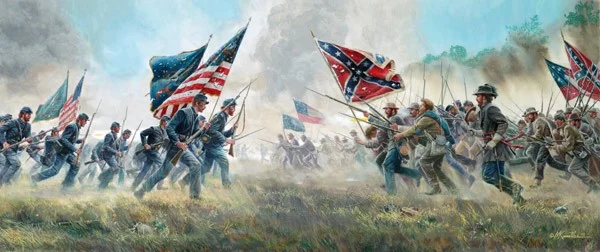Why Was There a Civil War in America?
Firstly, we must put aside the biases put forth accidentally through docudramas and historical fiction. The Civil War was not over the question of slavery, but over the question of state sovereignty. Is a person a citizen of their state or their country?
The 10th Amendment states that “the powers not delegated to the United States by the Constitution, nor prohibited by it to the States, are reserved to the States respectively, or to the people”. This amendment left many questions in the air, especially the question of the nature of those powers. What powers are not explicitly provided by the Constitution?
In 1832, South Carolina threatened to leave the United States. Why? Under the conservative Andrew Jackson administration, the government surprisingly passed the liberal U.S. Tariff of 1828. These tariffs on European goods would divert the economic flow of the South’s cash crops to the hands of the Northern industrialists. When South Carolina started to flounder, the national government passed the U.S. Tariff of 1832, which made some minor changes to the Tariff of 1828. This made the proud Southern state feel alienated by their government, causing her to threaten secession from the Union. Jackson threatened to send Federal troops into the South, causing South Carolina conceded her case through a compromise.
However, this event sowed seeds into the soil of rebellion, later to be planted through the annexation of Texas. With a new slave state, the powers of government swung in the direction of the pro-slavery Democrats. However, this was later reversed when California was declared a free state in the Compromise of 1850. The final straw was the Kansas-Nebraska Act, which toppled any of the former compromises and established popular sovereignty for all states. This act of good will by President Franklin Pierce caused a war on the plains of Kansas.
When the Drew Scott decision was passed by an extremely bias U.S. Supreme Court, the Democratic Party was split by half. So, after John Brown’s raid, the Election of 1860 came, and the Republican Abraham Lincoln won the seat for U.S. President with a little over 40% of the popular vote, the Southern Democratic John Breckenridge coming in second in the electoral college vote. The chance of a slave-free amendment passing the houses of U.S. governments and harsher tariffs made the Southern states fear for their economic and moral well-being. Now that is where the story begins, the story of the Civil War.






